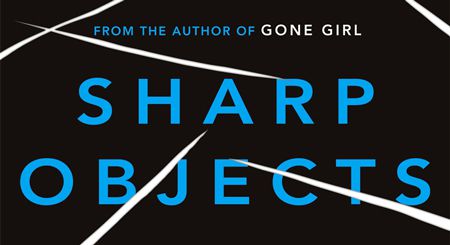Our online manager, Nina Kenwood, writes a defence of Gillian Flynn’s
Last night’s episode of The Book Club (a show we are obviously big fans of here at Readings) discussed Sharp Objects by Gillian Flynn and Jane Eyre by Charlotte Bronte. You can watch the episode in full here.
Sharp Objects didn’t receive a lot of love from the panellists, which left me wanting to present an alternative perspective on a book I highly recommend.
(There’s no need for me to say anything in defence of Jane Eyre as this eloquent, lovely tribute by Michelle Law encapsulates every reason to read or re-read the book.)
A nasty, spiky crime thriller, Sharp Objects is Flynn’s first novel – her third is the hugely popular Gone Girl – and it’s a difficult book to ‘like’. The characters are damaged and twisted and the plot leaves you feeling a little bit sick. At the same time, the book’s willingness to go to dark places is also the reason I found Sharp Objects so appealing.
The story follows Camille, a journalist returning to her hometown to cover the case of a missing young girl. Going home means Camille has to face her dysfunctional, estranged family and the issues that drove her to violent, disfiguring self-harm when she was a teen.
Like Gone Girl, the plot is fast-paced, twisty and designed to keep the reader gripped. However the crux of my enjoyment of Gillian Flynn novels isn’t her plotting; it’s the way she writes about women. We live in a world where women are encouraged to be nice and told to smile, where women’s ‘likability’ is discussed in the scope of both their professional and personal lives, where journalists ask women authors if they would want to be friends with their characters.

From the ‘Bitchy Resting Face’ Video
In the face of this, Flynn is a breath of fresh air. She doesn’t care if her female characters are nice or if her book is likable. In fact, she strives to make them otherwise.
Flynn is a bold writer and Sharp Objects is a book unafraid to plumb the bleak depths of human nature. It’s also a book largely populated by women – villainous, crazy, damaged, creepy women. Every single woman in the novel wants something, whether it is social standing, love, power or escape. Even the minor characters. Even the two little murder victims are given dark desires and unappealing personality quirks. No one is likable but everybody is interesting. In this way, Flynn gives power to her female characters. They jump off the page, they claw into your head, they stay with you.
Sharp Objects isn’t a book to everyone’s tastes, but that doesn’t make it any less worthy of being read. It’s like a good horror movie – the kind that disturbs you for days but you find yourself recommending to friends. If you enjoyed Gone Girl, then I encourage you to try Sharp Objects – in many ways, it’s a more complex, challenging and interesting read.



